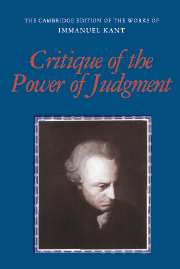Back to NEH conference home page
About Us
Details about our own careers
and publications are available at the philosophy department websites of University of Pennsylvania and Northwestern University. We would like, however, to provide a
brief description here of our interests as they are related to this
project.
 Our
research interests have focused on German philosophy, particularly on Kant's
Aesthetics, as well as aesthetics more generally. Paul has written three
Our
research interests have focused on German philosophy, particularly on Kant's
Aesthetics, as well as aesthetics more generally. Paul has written three
Rachel is currently working
on a book on J.G.F. Herder's aesthetic theory, which was deeply influenced by
the Scottish Enlightenment (particularly Kames). The study of the works we will discuss in this seminar is
crucial not only for understanding the intellectual-historical origins of
Herder's thought, but also for exploring one of the central tensions in his
aesthetic theory. Like the Scots,
Herder wished to reconcile two apparently opposing claims concerning aesthetic
and artistic value: that it is to
be explained by reference common natural characteristics of the human organism,
and that it is historically and culturally influenced, indeed is valuable in
part because it expresses the historical and cultural specificity of its social
context.
Paul has previously published
many essays on various aspects of eighteenth-century aesthetics, including
essays on the debate about disinterestedness and on Moses Mendelssohn collected
in his 1993 book Kant and the Experience of Freedom and essays on Hume, Gerard, and Alison collected in
his 2005 Values of Beauty. He is currently working on a
comprehensive history of philosophical aesthetics from the beginning of the
eighteenth century until the end of the twentieth. The central theme of this work is that modern aesthetics has
been defined by contrast and interaction between the ancient idea that
aesthetic experience offers a special form of access to important metaphysical
and moral truths and the modern idea that aesthetic experience is a free play
of human powers that does not need justification by external standards although
it may have external benefits.
Thinkers such as Hutcheson, Gerard, Kames, and Alison were seminal in
the development of this new idea, Reid resisted it, and Kant is a perfect
illustration of the interaction between the old and new idea. Paul is looking forward to the
opportunity to test out his interpretations of these works in this
seminar.